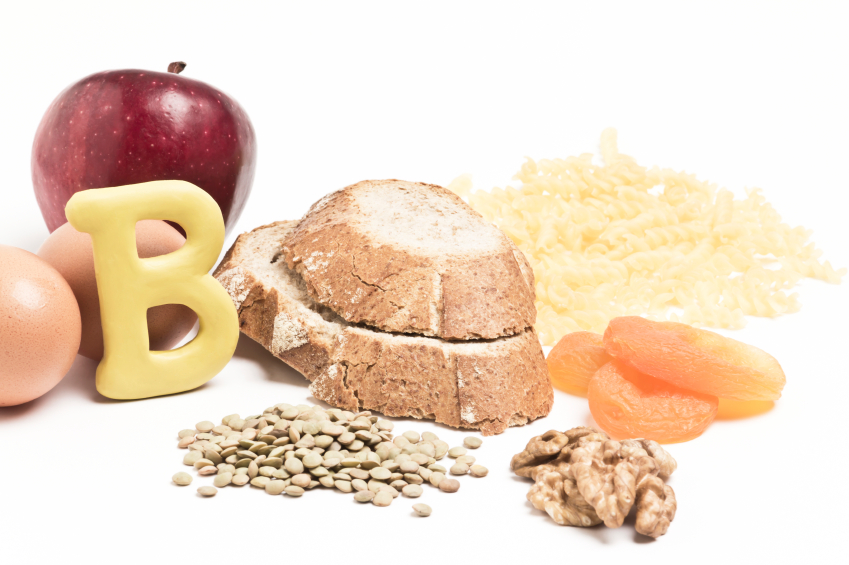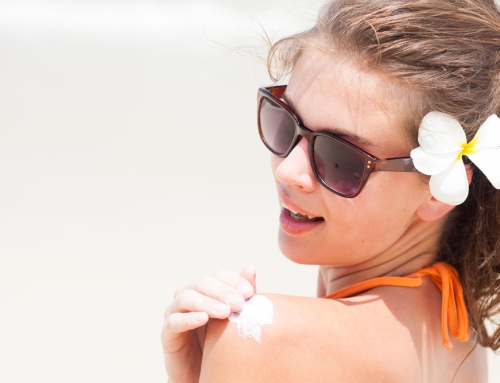 The vitamin B complex contains eight different B vitamins – Thiamine (vitamin B1), Riboflavin (vitamin B2), Niacin (vitamin B3), Panthenol (vitamin B5), Pyridoxamine (vitamin B6), Biotin (vitamin B7), Folate (vitamin B9) and Cobalamin (vitamin B12). These vitamins are found naturally in a number of food items and many of them are also used in the product formulations of the OROGOLD 24K Multi-Vitamin Collection. This article helps you understand more about the benefits that these B vitamins have to offer your skin along with unique insights into the various B vitamins that the ORO GOLD 24K Multi-Vitamin Collection contains.
The vitamin B complex contains eight different B vitamins – Thiamine (vitamin B1), Riboflavin (vitamin B2), Niacin (vitamin B3), Panthenol (vitamin B5), Pyridoxamine (vitamin B6), Biotin (vitamin B7), Folate (vitamin B9) and Cobalamin (vitamin B12). These vitamins are found naturally in a number of food items and many of them are also used in the product formulations of the OROGOLD 24K Multi-Vitamin Collection. This article helps you understand more about the benefits that these B vitamins have to offer your skin along with unique insights into the various B vitamins that the ORO GOLD 24K Multi-Vitamin Collection contains.
Thiamine (Vitamin B1)
Vitamin B1 is an extremely powerful antioxidant that has been attributed to anti-aging benefits. It is also known to be essential for maintaining cellular functions as well as a number of organ functions. Vitamin B1 deficiencies can cause issues like degeneration of the body, severe fatigue and diseases like Beriberi. Some of the best food items to get your daily dose of Vitamin B1 are yeast and pork.
Riboflavin (Vitamin B2)
Vitamin B2 offers your skin with all sorts of benefits. It helps in facilitating the normal reproduction of your skin, assists in the development of your tissues and helps out with cell growth and repair. Vitamin B2 is also known to be very effective in helping with the secretion of mucus in the skin and this is particularly beneficial for people suffering from Rosacea. The best food items that offer you with Vitamin B2 are almonds and mushrooms.
Niacin (Vitamin B3)
Vitamin B3 is a water-soluble vitamin that is properly regulated in your body. Deficiencies of this vitamin can lead to issues like skin inflammation, anemia, depression and confusion. Niacin improves the efficiency and firmness of your skin cells. Eggs and poultry products are known to be excellent sources of Vitamin B3. Vegetarians can look at things like peanuts, mushrooms, sunflower seeds and avocado.
Panthenol (Vitamin B5)
Vitamin B5 is essential for your cellular processes and the proper maintenance of your fat. Deficiencies of Vitamin B5 are extremely rare, but a deficiency of this vitamin can lead to issues like irritability, fatigue and muscle cramps. The vitamin helps to soothe, moisturize and soften your skin’s appearance. Honey and molasses are some of the best sources of Vitamin B5.
Pyridoxamine (Vitamin B6)
Vitamin B6 is a water-soluble vitamin that is essential for a number of body functions like the nervous system, the immune system and the maintenance of the red blood cell metabolism. Pyridoxamine also helps in preventing the production of excess sebum in your skin. This makes it particularly beneficial in preventing the formation of acne and it also works wonders in acne treatments. Over time, deficiencies of Vitamin B6 can lead to issues like confusion, anemia, dermatitis, skin inflammation and depression. Beef and whole grains are amazing sources of Vitamin B6.
Folic Acid (Vitamin B9)
Folic acid, or folate, is a water-soluble vitamin that is essential for a number of skin functions like cell growth, DNA synthesis and repair and cell division. Folic acid is also required by the skin to enjoy a natural and healthy looking glow. This vitamin is also known to be integral for pregnant women because it helps with fetal development. Fresh green vegetables like broccoli and spinach are excellent sources of Vitamin B9.
Cobalamin (Vitamin B12)
Cobalamin is known to be the most complex vitamin that is currently known to man. Vitamin B12 deficiencies can lead to issues like fatigue, depression and anemia. This vitamin is usually only manufactured by bacteria and is mostly found in animal products. However, synthetic forms of the vitamins are widely available in food products like cereals. Cobalamin is very useful for your cell repairs. Some of the best sources of Vitamin B12 are meat and fish. Vegetarians can choose from things like fortified cereals, skim milk (low fat dairy) and Swiss cheese.








